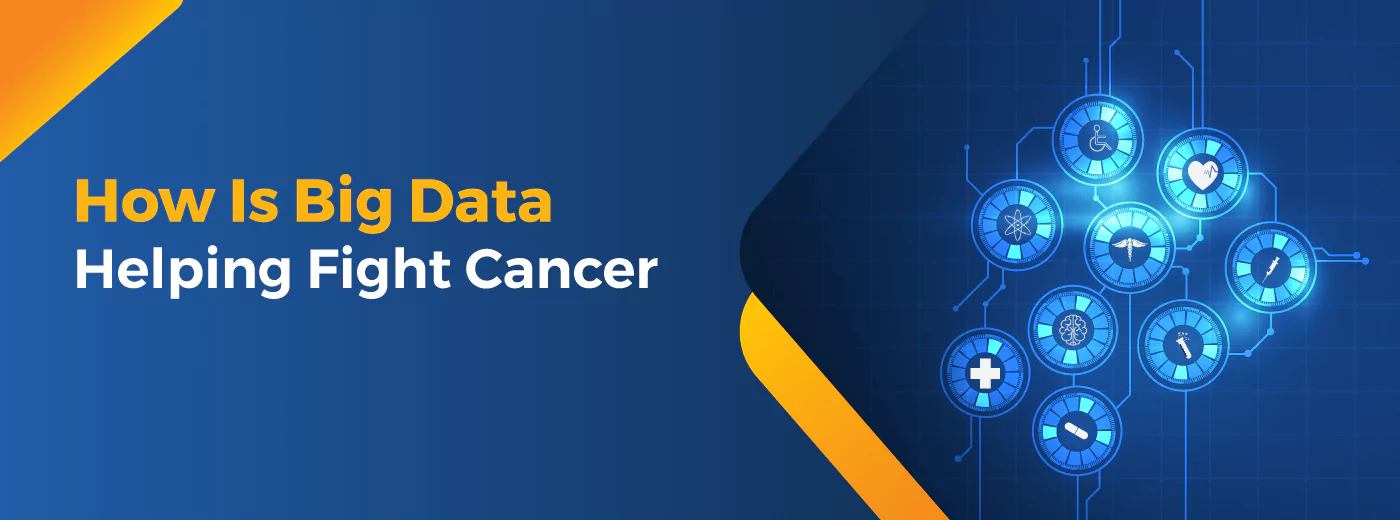Editor's Note: In today's digital age, where data is being generated at an unprecedented rate, harnessing its power has become crucial in advancing our understanding and treatment of complex diseases like cancer. This insightful blog explores the incredible potential of big data analytics in the field of cancer research.
Introduction
The fight against cancer is the search for the Holy Grail of medicine. Today, there are numerous challenges faced by oncologists and they are related to - standardization of treatment, remaining up-to-date in the multidisciplinary management of all types of cancer, collecting information around numerous scales for what constitutes a disease, and more.
According to TOI, with a million new cases being reported every year, cancer seems to be tightening its grip. Some experts are predicting that the occurrence of the killer disease is expected to rise five-fold by 2025. Statistics show that cancer cases have increased from 700 to about 1000 per million populations.
Cancer is one of the fastest evolving, ever-changing complex diseases. It is the second leading cause of death globally. According to the World Health Organization, roughly 14 million new cases of cancer are reported each year. And that number is expected to rise by about 70% over the next 20 years. The fight against cancer has made huge strides over the past 30 years, with the survival rate having doubled, a general cure remains elusive.
Now the question is - How Oncologists can mitigate these challenges? That's where big data comes into the picture. According to research, the Big Data market size is set to grow to a whopping $6.6 billion by 2021. As it continues to evolve, it can augment traditional healthcare by detecting trends to enhance disease diagnosis. In fact, in some parts of the globe, it is already being used to identify diseases, such as cancer, more accurately, and in their early stages.
Leading Organizations: Navigating Trends, Leveraging Insights, and Embracing a Data-Driven Culture
Big data is empowered with robust abilities and it is most suitable for handling a large amount of data. The role of big data in medicine is to - build better health profiles and better predictive models around individual patients to diagnose better and treat diseases. For instance - IBM Watson Health has solved some of the pressing challenges through Big data. By combining human experts with augmented intelligence, it helps health professionals and researchers around the world translate data and knowledge into insights to make more informed decisions.
Big Data Analytics - A Game-Changer In Cancer Treatment
Researchers are predicting that Big Data analysis has the potential to accelerate cancer treatment and to make good on the promise of more personalized medicine and treatment.
Data is being utilized to help oncologists in offering tailor-made treatments base on - biopsy specimens, patient history, and other related data. Institutions around the world are busy collating myriad forms of cancer-related data from patient case histories and global research and surveys.
Huge quantities of this data are now being analyzed and examined to spot findings that can be used to create new therapies that can lead to more personalized treatments. For instance, researchers in the United States are now sifting through hundreds of gigabytes of image data from thousands of patients to try to find differences that distinguish the different subtypes of breast cancer from each other. Given that no cancer is the same, this could be the holy grail of cancer treatment. For patients who have non-recurrent cancer, this could lead to milder therapies and treatments. The opposite might be right for those with more aggressive or recurrent strains of the disease.
In the current scenario, researchers are using risk stratification modules to crawl through millions of health records in a population to understand patterns, trends and patient similarity metrics leveraging Natural Language Processing (NLP) systems. This also takes into context unstructured data such as – discharge documents and physician notes that are not often taken into account for analysis, reinforcing the importance of Big Data analytics in this area of treatment.
Big Data also assists practitioners and researchers with specific details of how thousands of medicines interact with the human body, making suggestions of those that might interact with cancer-infested cells. Interestingly it was recently announced that 14 cancer institutes across the United States and Canada would be using analytics and artificial intelligence (AI) to match cancer patients with the treatments most likely to help them. In addition to recommending relevant drugs to treat particular cancer, Artificial Intelligence could also suggest therapies not tried before.
Clinics and hospitals must adopt online hospital information systems (HIS) and electronic health records (EHR) that can further integrate with the National Cancer registry program (NCRP). The collection and management of this data need to be systematic and proper records should be maintained. This analysis of data, along with demographical statistics needs to be simultaneous with existing data sets for more effective outcomes around cancer management and treatment.
Harness the power of analytics to empower pharmaceutical companies with data-driven insights for smarter decision-making.
Big Data is also utilized to predict which patients are most likely to follow their doctor’s advice and which aren’t to help prevent hospital readmissions in the most vulnerable patients. Apps are being developed that can track when a patient takes his or her medication.
Others record information like - calls, texts, physical location, movement and sleep patterns that can help alert doctors or family members if the patient is likely feeling unwell.
Big Data has the potential to improve patient outcomes, understand the disease and help cure cancer with these advances in the quantity and quality of the data which is collated with the computing power to analyze and understand the disease.
Conclusion
Today, with the use of big data, medical analysis to predict cancer recurrence, progression and response to therapy is no longer a tough task. The fight continues but leveraging big data consulting can help speed up the process of finding the elusive cure, thereby ensuring that there is a definitive light at the end of the tunnel.



